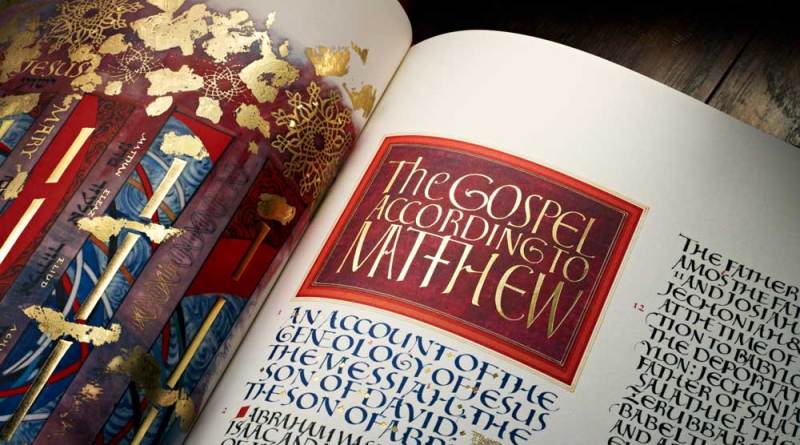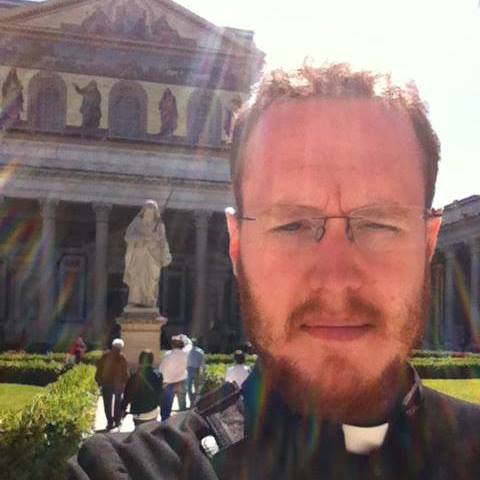
-please click on the image for greater detail
“Those who leave out the context really leave out the conception. They have a mysterious power of making the world weary of a few fixed and disconnected words, and yet leaving the world entirely ignorant of the real meaning of those words.”
– G.K. Chesterton
“The preunderstanding of the interpreter, even when it includes a faith posture and a rigorous historical approach, generally incorporates a wide variety of other assumptions as well. These other assumptions will influence the outcome of the hermeneutical effort. Across the history of the church these assumptions have generally revolved around the nature of the Bible and more particularly the intersecting concepts of revelation, the Word of God, inspiration, authority, tradition, and function.”
– Duncan S. Ferguson

-by Fr. Christopher Pietraszko, Ignitum, Fr. Christopher serves in the Diocese of London, Ontario.
“A lack of wisdom often occurs to us based upon our own personal hermeneutics. What I mean by “personal hermeneutics” is the pre-established categories/language by which we have already accepted and ascribe to, consciously and unconsciously. The mind itself becomes “closed” when we remain unopen to licit, new categories or distinctions that can help us discern the truth, nuance it and understand its application in more dynamic manners. For instance, if all we have is the moral imperative of following the law, then when a tornado chases us down the road while we are driving, we will continue to follow the speed limit because “we must follow the law.” And while the latter quote is quite right, if we add the nuancing truth from St. Thomas Aquinas about appropriate times when we should suspend a secondary precept/law to preserve the principle or primary law which roots speed-limits in saving lives, then we will speed away, hopefully to safety.
According to Josef Piper, there are two scholastic categories of thinking: ratio and intellectus. Ratio pertains to the discursive, systematic approach to thinking and knowing. This part of our intellect is what “seeks” or is “active.” The intellectus is the more spiritual side of things, where understanding exists or what we might call “integration.” Here there is not so much a discursive logical process occurring, but rather an immediate type of knowledge which Aquinas considered superior to ratio. This part of our intellect is the closest to the angels and is considered to be docile and passive/receptive. Both of these parts of our thinking are important: for those who eat (active) must also digest and assimilate (passive).
Let’s apply this to the spiritual life – scripture often speaks about eating as a spiritual exercise – eating a scroll, eating the word, eating Christ’s flesh. It can taste sweet, but when digesting it, it often becomes bitter and difficult. The bitterness we experience is the consequences of the good consolations changing our world-view, our internal hermeneutics, leading us to a type of spiritual maturity in Christ where we meet the cross He calls us to carry. It is the prophet who falls in love with God, yet must also face the crowd.
Now, the intellectus is typically grown by the grace that comes from virtue. When speaking about having a relationship with Christ, having the discipline/virtue of a deep, abiding relationship with Jesus, generates an interior hermeneutic whereby we can interpret the law, the prophets, all of revelation, our life, and everything through this lens. The intellectus becomes unconscious, perceiving all things in conjunction with a love for Christ in the same way that our left hand doesn’t know what our right hand is doing. This type of “automatic” wisdom that does not require an exerted effort from our ratio means that our entire way of thinking, our way of approaching life, has become integrated, or infused.
Now if we run into a Christian, baptized or ordained, that does not have the transcendent type of relationship with Christ, but only a ratio relationship (head-knowledge, entirely discursive) with Christ, things will constantly be interpreted incorrectly. It would be as though the person chews on the word, but then spits it out.
Imagine it like this: the unconscious or passive or automatic aspect of our soul has boxes or totes that assimilate content, events, and experiences. They enable the soul to “digest” the truth, to safeguard it, “to treasure it in her heart”. If we do not have a transcendental relationship with Christ, but an entirely natural, almost-secular type of relationship with Him, then we will only be capable of digesting (understanding) the Gospel in an earthly manner. We will read His parables incorrectly, twisting the narrative to only fit in the totes of worldly categories, and like the crowd seek to make Him a worldly King rather than enthrone Him in our conscience. To be puzzled by His parables therefore may suggest to us that we are missing something that helps us assimilate/understand the content to which He communicates. And if we, in our pride insist that as a teacher we understand the parable, we will teach it incorrectly, likely in the process contradicting ourselves. How many would see the parable about the wages as unfair? Yet a deeper understanding of grace seems to be the tote which enables this parable to be received, accepted, digested, and in fact a way of living.
So if we hear prelates, or laity, proclaim a type of secular humanism, or idolatry of externals, and rarely mention a relationship with Christ that involves the will, the heart, the mind, and all our strength, then God is possibly revealing to us a deficit in that person’s life. They may not be able to identify it in their own life, but as evangelists we might be able to. What it reveals to us is a need to return or engage the soul in the life of the supernatural: in a deep, penetrating way, where the soul seeks not the accidental (non-essential) realities of the faith, but rather its Substance: which is communion with the Divine.
We cannot be moralistically critical here, but we must be like doctors to the soul, pointing to an awareness of a need to grow in our relationship with Christ.”
“We trust ourselves to a doctor because we suppose he knows his business. He orders an operation which involves cutting away part of our body and we accept it. We are grateful to him and pay him a large fee because we judge he would not act as he does unless the remedy were necessary, and we must rely on his skill. Yet we are unwilling to treat God in the same way! It looks as if we do not trust His wisdom and are afraid He cannot do His job properly. We allow ourselves to be operated on by a man who may easily make a mistake—a mistake which may cost us our life—and protest when God sets to work on us. If we could see all He sees we would unhesitatingly wish all He wishes.”
— Fr. Jean Baptiste Saint-Jure, p. 90, an excerpt from “Trustful Surrender to Divine Providence“
Love,
Matthew
